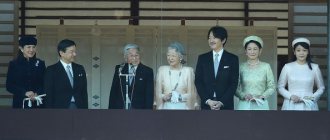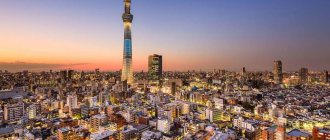Who gets paid the most by profession?
The ranking of salaries in the world for specific specialties deserves special attention. For example, in the TOP 10 regions with the best salaries, preferences for professions vary.
- Norway pays the most to doctors, IT workers, programmers, and oil workers;
- in Australia, residents of the capital earn well and residents of Tasmania receive little; doctors and programmers are highly valued;
- New Zealand pays the most for the work of lawyers and doctors;
- The USA pays dearly to engineers, teachers, doctors, police officers, and high-tech specialists;
- Germans willingly provide large incomes to talented computer scientists, financiers, doctors, and insurance specialists;
- Canada loves construction workers, computer scientists, truck drivers, engineers, chefs, oil workers, lawyers;
- the Japanese are traditionally unusual - in addition to standard computer and electronics engineers, designers, salespeople, architects, advertising geniuses, and PR people earn good money in Japan;
- To live in France, IT specialists are entitled to up to $4,000 per month, the same amount for accountants, and in production they can earn more than $3,000.
In general, salaries in Europe in 2019 were recognized as the highest in the following specialties:
- Engineer-economist (from 20 thousand dollars in Belgium to 40 thousand dollars in Switzerland).
- IT specialist (from 20 thousand dollars in Belgium, Italy to 40 thousand dollars in Switzerland).
- Lawyer (from 18 thousand in Belgium to 40 thousand dollars in Switzerland, Germany).
National subtleties
In Japan, it is not difficult to determine the highest paid office worker. It's enough to just find out everyone's age. Japanese companies have a system based on which it turns out that the longer an employee has worked, the higher his salary. The “seniority system” has worked well for lifelong employment. Senior employees receive a very small salary, around 2.5 million yen per year, which is approximately 22 thousand dollars. The longer an employee stays in the company, the more significant his salary is. But, due to the economic crisis, the majority of companies restructured their expenses, as a result of which the “seniority system” began to gradually collapse. This event shocked many Japanese, since most of them did not imagine that they would have to change their profession at least once in their lives.
Young Japanese could not count on lifelong employment, so most simply stopped accepting jobs with initially low salaries. Young people working in traditional companies have begun to question the need for employee incentive systems based on age. Young specialists are not ready to wait for many years for the moment when they will be promoted. Some of them left their previous jobs in search of a more lucrative salary.
Most companies have revised their policies and introduced performance-based pay systems. Thus, they managed to attract promising young specialists to the company. Recently, many of the largest Japanese companies have abandoned the seniority system, although the lifetime employment system in Japan is considered the most acceptable.
Changes in workers' income as they age
The Japanese take jobs for life. Constant changes with notes in the work book are not welcomed by the employer. Specialists have been gaining experience for years. Young people at the beginning of their working life receive about $32,000 per year. A fifty-year-old specialist for the same amount of work can count on 65,000. In Japan, there is gender inequality in matters of wages. A young man earns $5,000 more than a woman, and at age 50 this amount increases to $25,000. Often, Japanese people retire from the same organization they joined after graduating.
Tax system in Japan
The country implements a two-tier taxation system. Workers pay a percentage to state and local treasuries. The complex accrual system does not exceed 20%. There are social insurance contributions in the country. Receipts for their payment come to everyone's home and amount to 5.3% of income. Other taxes are also mandatory in Japan:
- transport - 5% of the cost of the car;
- for real estate - 4% of the cadastral valuation;
- for property - 1.4% of the cost;
- for accommodation to local authorities 4% and to the prefecture 14% percent.
Law-abiding citizens do not violate the established order in order to save money. Failure to pay taxes is subject to fines.
Paying income tax
The basis is income tax. Its calculation includes not only annual wages, but also rent, bank deposits, pensions, severance pay, securities and trade. Unemployed people voluntarily give money to the state treasury. Failure to pay taxes is punishable by a fine of 15% of the total assessment. The percentage for minor children, dependents, unemployed people, medicine and education is deducted from the employee’s salary.
How much do Japanese people earn?
According to information provided by the Ministry of Health, Labor and Welfare, in 2021 the average salary in Japan was about 3,150 USD.
But this figure is not constant: the level of income in Japan varies every month - in the winter the Japanese receive less, in the summer - more. In 2021, the nominal wage was almost $2,700 (301,984 yen) in the winter, but in the summer this figure increased significantly to $3,600 (402,645 yen). Thus, the average salary for 2021 was $3,150 (352,314 yen).
How does the annual income of women and men in Japan change relative to age?
According to data provided by the Ministry of Health and Labor, the highest salary was in 1997 - $8,430 - 883,000 yen. The Japanese received the least in 1970 - $475 (52,000 yen) monthly.
Features of employment
To find a job in Japan, you need to understand the mentality of this country. The locals are very hardworking. They come to their places to work there until old age. The Japanese value continuous experience in one enterprise above many other indicators.
There is work in Japan for Russians, despite the fact that the country is considered as closed as possible to migrant workers. They do not pay attention to the nationality of the applicant if he is a true professional and master of his craft. Employers give preference to the Japanese, so the migrant must prove that he meets the required criteria.
Most in-demand professions
You can find vacancies on a specialized website with advertisements. The Japanese labor market needs specialists and is ready to give jobs to foreigners in a number of professions.
- The country of high technologies constantly requires new developments in this area. There is tough competition among IT specialists, but with worthy projects, foreigners can try to get a good position.
- Citizens of other countries are most in demand in architecture and design. The world around the Japanese is changing, and foreigners are becoming conduits through which innovations in home design and building design come.
- To become a sales manager, you must be fluent in the local language and have experience in your specialty.
- The entire business and economy of the country is built on managers and HR specialists. Marketers and managers are most often recruited from among local residents. However, experience working in foreign companies is welcome.
- Migrants may become part of the production workforce. There are many giant enterprises producing cars and equipment in the country. Employers indicate in their advertisements that technical education is mandatory.
- To find a position as a teacher or consultant, you need to know not only Japanese and Russian, but also other foreign languages.
There is a great demand for medical workers in the country, but it will be difficult for citizens of other countries to fill this niche. In Japan, clinics are private and wages are high. A diploma of medical education obtained from a foreign university is not quoted, and there is no practice of confirming it. To become a doctor, you need to re-study at a university in Japan.
Taxation procedure
Those living in Japan are required to pay several types of payroll taxes. The accountant takes care of the deductions, so the average Japanese does not need to worry about it and delve into the intricacies.
There are a number of differences between the tax systems of Japan and Russia. In particular, the Japanese system divides the types of taxes into income, prefectural and local. In Russia there is only a fixed rate income tax. But in Japan, the amount of tax, that is, the percentage of payments from the salary, depends on the amount that is charged to the employee. Depending on the size of the salary, the rate is set:
- up to 21,000 - 5%;
- from 21,000 to 33,000 - 10%;
- from 33,000 to 66,000—20%;
- from 66,000 to 100,000 - 23%;
- from 100,000 to 200,000 - 33%;
- from 200,000 and more - 40%.
But despite the fact that the tax on workers who receive the maximum amounts is almost equal to half of them, cases of fraud and fraud are quite rare in Japan. The fact is that the law establishes serious fines and criminal sanctions, so it is easier for employers to comply with the laws than to risk falling under them.
Apart from levying income tax, the country has various other types of taxation. This includes paying for owning transport, real estate and running a business. It is expected that the government will soon review legislation regarding these issues.
International statistics
The calculations of the International Labor Organization (ILO) are closer to the truth. The charts she compiled are based on a detailed study of the situation in 70 areas of the world whose economies are the most successful. The final table of indicators is a list where the top lines are occupied by the highest-income nations, and then in descending order of values. The US dollar was chosen as the monetary unit for calculations, but adjusted for the fact that in different countries $1 can buy different quantities of goods. Thus, the data does not reflect the overall profitability against the backdrop of all countries at once, but the consumer weight of labor pay for a particular region, based on the ratio of domestic prices and average profit.
Labor market for foreign workers
In the labor market, highly qualified workers are of great value. These could be programmers, doctors, engineers, pharmacists, various researchers and testers, and electronics specialists. The main nuance is that in order to obtain such positions, a foreigner must confirm his knowledge of the language (often both Japanese and English), as well as his qualifications. No one will take your word for it; everything is strict about this in Japan.
The most in-demand professions
Specialists in the information sector, gaming, engineering, healthcare, financial activities and the service sector are in demand.
Foreigners' income level
If you don’t know where to start your business, then start with work in the service sector. In trade, you will receive from $2,600 per month, in the office or when working as a nanny, your salary will be approximately $2,000 per month, but this salary is below average.
Requirements for applicants for the position
Due to the fact that Japanese companies are very focused on working with foreign colleagues, lack of knowledge of the Japanese language at the proper level cannot be a barrier to employment. But you must speak English at least at level C1.
For many, this requirement is already an obstacle, but there is a great flow of those of our compatriots who are ready to learn the language for the sake of their dream job. Thus, without knowing Japanese, you can get a job, but in the competition of a local specialist with the same experience and with the same qualifications, most likely, the choice will not be made in your favor.
It is necessary to take care of the place of work in advance, because without an invitation from the employer you will not be able to obtain a work visa, and you cannot work on a tourist visa. A single-entry visa will cost you approximately $27, a multiple-entry visa will cost you twice as much.
But if you plan to travel to work meetings and work as a foreign representative of a Japanese company, then it is better to take care of obtaining a multiple-entry visa. The registration will take about a week, the main thing is that you have good reasons for entering Japan, that is, a ready-made workplace.
Comparison with Russia
Naturally, comparing salaries in Japan and Russia will be a losing proposition for the latter. In the Russian Federation, the rate currently set for all regions is 25,000 rubles (at the same time, the average salary in the Magadan and Yamal-Nenets districts can be received significantly higher - from 100,000, since companies that are engaged in mining are also open here pay attention to difficult climatic living conditions).
Don't forget that Japan has a completely different standard of living. Rent of a small room, practically devoid of any amenities, not in the city center can reach 4,000 - 5,000 dollars.
Economic Forecast Tokyo, Japan
Tokyo has the world's largest GDP as a city. Tokyo's economy is highly diversified and has a strong presence in most sectors. The Japanese capital also serves as the headquarters for a number of important multinational companies of Japanese origin. Among them we can mention Sony, Honda, Nikon, Fujitsu and many other major Japanese brands. Tokyo is also a major global financial center. It is home to the Tokyo Stock Exchange, the third largest in the world by market capitalization.
Despite being an extremely wealthy city, opportunities for expats in Japan are not as plentiful as in other cities. This trend is showing little change, and the number of expats in Tokyo has been increasing in recent years. For those who speak Japanese, the city offers good career opportunities. However, if you are highly qualified in a high-demand field such as IT, robotics and finance, there are also jobs that do not require Japanese language skills, with many of these jobs being in senior positions. There is also a high demand for ESL (native speaker) teachers in Japan.
If you are planning to move to Japan, you can find more information on the Japan Immigration Bureau website.
If you're traveling to Japan, you may want to check out some of our guides. You check out the best areas to stay in Tokyo. You can also look at where to stay in Kyoto.
Are you really going to work and live abroad, temporarily or permanently?
What will happen to illegal employment and registration?
Having got a job, a migrant from Russia who works in the East must understand how legally he took up this position and whether the appropriate documents were drawn up. If not, the Russian will face deportation or criminal liability.
We recommend reading: rules for entering Japan.
In order not to be included in the list of risks for imposing sanctions against a foreign citizen, it is recommended to monitor the intricacies of your activities:
- Do only what is specified in the job description. Receive wages properly according to the contract (there must be one).
- It is prohibited to hold a position by profession if a Russian has come for temporary residence, and he does not have a work visa.
- An expired work visa is a valid reason for deportation. It is prohibited to receive income if the document is not valid.
Therefore, foreign employees migrating from Russia to Japan are advised to take these details into account in advance. The manager’s conditions set in such a way that the person will not be registered cannot be accepted.
To freely enter the country, you must obtain permission from the Japanese Foreign Ministry department, which is provided in the form of a visa. For citizens who want to come to work, there are two types of this document:
- Having “Residence Status”. This means that a foreigner can work exclusively in one profession and has no right to engage in other activities.
- Without being tied to a specific type of activity, which allows you to apply for almost any vacancy.
To obtain a visa, an immigrant must comply with Japanese law, as well as comply with paragraph 1 of Article 5 of the Law on Immigration Control. He should also prepare the following documents in advance:
- internal passport of your country;
- international passport with color copies of the first page;
- two high-quality photographs for documents;
- invitation from the employer.
It is recommended to take photographs in two formats at once: 5x6 and 3.5x4.5. It is worth noting that the list of documents may change, so you should contact the embassy in advance to clarify the list of required documents. After submitting the application, all that remains is to wait for a response. Typically, the application is reviewed within 5 working days.
The most profitable professions
The main distinguishing feature of the Japanese worker is hard work, perseverance and diligence. Every Japanese person is devoted to the company they work for and is ready to devote most of their time to their work. This approach to business has helped Japanese companies survive more than one crisis. It is still not customary in the country to change jobs, and lifetime employment is still relevant. Therefore, some newcomers find it difficult to come to terms with increased demands from recruiting managers. The most in-demand professions on the labor market in Japan:
- IT specialists. The country has many of its own network administrators and developers, but professionals are always in demand.
- Designers. There are a lot of immigrants among them, and the local population is less involved than foreign citizens.
- Management personnel. What Japan needs most is management specialists. Foreign experience in this area is viewed positively, but only if they have knowledge of the language at the level of local residents.
- Sales managers. In Japan, like in any other economically developed country, hundreds of stores open every year. A foreigner can also work successfully in them, but again, a good level of Japanese is required.
- Marketing specialists. Good advertising these days is the key to the prosperity of any business. Foreigners are welcome, but knowledge of the language is required.
Economic situation in the country
Every year there is an increase in GDP per capita with a minimum level of inflation. The increase in the first indicator at the beginning of 2021 is 1.22%, while food prices increased by only 0.18%. The country has a high standard of living, which is due to two aspects:
- absence of economic crises for a long time;
- the hard work of the local population.
The average salary of a Japanese person per year is 390 thousand dollars, which corresponds to 3250 per month. The local population works very hard and spends little. The Japanese can afford to travel all over the world, but they are very organized and know how to count money. Not a single extra penny will be spent on entertainment that does not correspond to moral principles.
Work in Japan for foreigners. Features and work visas.
The population of Japan in 2021 is approximately 127 million. The bulk of local citizens are employed in the service sector (72.2%) and industry (26.6%). Agriculture accounts for just over 1%. Foreign applicants who want to find work in Japan in fisheries or rice farming have very little chance.
Japanese workers are highly skilled and hardworking. Therefore, finding a job will require serious competitive advantages. For example, work in Japan is available for girls in the modeling business, while men can apply for vacancies in the automotive industry. In almost every case, a foreigner will need knowledge of the Japanese language. Moreover, English proficiency must be at a high level.
Working in Japan without knowing the language is an unrealistic task, unless teaching Russian in Japanese educational institutions or finding illegal employment. The second option is absolutely losing, promising large fines, a ban on entry into the country, and even imprisonment. To find a job in Japan, a foreigner needs to have sufficient qualifications, experience and skills in a particular profession. Without this, finding a job in Japan, especially for a citizen of Russia or other representatives of the CIS countries, will definitely not be possible.
In most cases, in order to move to Japan for the purpose of employment, you must find an employer in advance, which will subsequently allow you to obtain a work visa. This is a requirement for foreign workers. Moreover, visas are mostly tied to a specific profession and do not allow you to engage in other types of activities. The most common is the work visa to Japan for highly qualified specialists. The document is issued for a maximum of 5 years.
To obtain a visa from the Regional Immigration Bureau of Japan, you must obtain a special certificate, Certificate of Eligibility, which indicates the right of a foreigner to engage in professional activities on Japanese territory. Typically, the Japanese employer is responsible for issuing a certificate for a foreign employee.
Documents for a work visa to Japan:
- Two copies of duly completed visa forms.
- Two color photographs (4.5cm×4.5cm).
- Original and copy of foreign passport.
- Copy of civil passport.
- Original and copy of Certificate of Eligibility.
In addition to qualified foreign personnel, Japan provides work visas for holders of specific professions:
- Professors (teaching and conducting scientific activities in educational institutions in Japan).
- Religious figures.
- Journalists.
- Representatives of creative professions (artists, composers, singers).
- Managers and senior managers.
- Medical workers.
- Scientists.
- Engineers and specialists in the humanities.
- Employees of foreign companies.
- Workers in the field of legal and accounting services.
Salary to Expense Ratio
The ratio of wages and expenses is different in our countries. If a Russian spends most of his expenses (from 50%) on food, then a Japanese distributes the budget differently.
To correctly assess the level of salaries in Japan, it is necessary to take into account how much citizens spend on food, household appliances, and buying or renting housing. So, the prices are approximately like this:
- studio apartment rental - from 40,000 yen minimum;
- mortgage loan for a small apartment - from 60,000 yen;
- monthly travel on public transport - from 5,000 yen;
- purchase of a used car and registration of an insurance policy for it - from 30,000 yen;
- food expenses - from 50,000 yen;
- Internet, telephony and television - from 7,000 yen.
This is just a minimum list of what you will need when living in the country. It should also be taken into account that constant spending will be on clothes and shoes, household appliances and electronics.
An overview of working in Japan is presented below.
Professions
Japan is considered a prosperous country with a high standard of living. The Japanese work a lot and have little rest, rarely retire and save all their lives. They receive their salaries in yen, the local currency, which can easily be converted into dollars or rubles. What are the incomes in this country, and what do the Japanese spend their salaries on?
The main thing that Japanese employers value is hard work. Here it is customary to work for one company all your life, sacrificing your personal time. That is why the Japanese working day lasts at least 12 hours. Interestingly, the standard working day is 8 hours, but the Japanese always work overtime and most often for free. And of the 20 allotted days of annual leave, it is rare that an employee will take at least half. There are the same problems with sick leave, since absenteeism for even one day for a Japanese means being branded lazy and irresponsible.
The average salary of an ordinary resident in Japan in 2021 is approximately 270 thousand yen. When converted to dollars, that would be about $2,300 monthly. But this is rather a minimum wage, since the amount of income must be looked at by specialty, position, etc.
Japanese salaries by profession are as follows:
- Lawyers earn the most (after businessmen). Their average monthly salary is at least 7 thousand dollars. Many successful lawyers earn so much that they can afford to buy houses almost every year.
- Doctors share the first place in terms of salaries along with lawyers. They also easily make $7-8k. These two professions are very popular, and marrying a doctor or lawyer is the ultimate dream for Japanese women.
- As for the salaries of the rest of the medical staff, for example, nurses earn about 394 thousand yen ($3,300).
- The average salary of a sales assistant in a hardware store is $2,700. Moreover, most of them must have a higher education when applying for employment.
- The income of Japanese teachers is much higher and amounts to almost 5 thousand dollars. Taking into account experience, an older teacher's salary can be twice as high.
- For public transport drivers, the average income rarely exceeds $2,500.
- But train drivers can boast of a salary of 3.5 thousand dollars. The Japanese consider such work to be responsible, and therefore the remuneration for it is decent.
- Taxi drivers earn much less - only 2 thousand dollars. Cashiers have approximately the same income.
- A good Japanese designer earns about $2,500.
- And programmers’ income does not exceed $3,000.
- Couriers make excellent money, receiving about 3.5 thousand dollars a month.
- Farmers and construction workers can expect wages of no more than $2,500.
- Civil servants (police officers, postal workers, etc.) receive 4, 5 thousand.
- As for Japanese deputies, their average salary often reaches $17,000 - $18,000.
Despite low salaries, computer technology specialists are now most valued in Japan.
Separately, it is worth mentioning those workers who draw Japanese anime. It is interesting that the Japanese do not consider this work as a separate profession and generally consider it more of a part-time job. And the fee for this is appropriate. The average Japanese receives no more than $1,000 a month for his drawings. But they pay more for voice acting for cartoons - approximately 2 thousand.
The income of Japanese entrepreneurs is a separate matter. The system is designed in such a way that most of them are in debt all their lives. The entire capital of any company is divided into two parts - about 80% of bank loans and only 20% of own funds. Banks charge very high interest rates to businessmen, which leads to a constant search for increased productivity.
Features of the economic and geographical location
Japan is located on 4 large islands - Honshu, Kyushu, Shikoku and Hokkaido, as well as on more than 6 thousand smaller ones. Its total area is 378 km2.
The subsoil of Japan is poor in mineral resources. On its territory, mining is carried out mainly:
- limestone;
- sulfur;
- oil;
- zinc and lead ores;
- coal.
The peculiarities of Japan's economy are a direct consequence of the fact that it is located in the center of the Asia-Pacific region (APR). This factor opens up broad prospects for the country to participate in the international division of labor.
Despite the lack of natural resources (raw materials for a large number of industrial sectors are imported from abroad), Japan occupies a leading position in some manufacturing sectors. For example, in terms of steel production volumes in the global ferrous metallurgy, its share accounts for 23%.
And the phrase Made in Japan is firmly associated with the high quality of a variety of products.
Salaries in various sectors of the economy
Doctors of all specializations have some of the highest incomes in the country. The higher the experience of a specialist, the greater the likelihood that the work will be appreciated. How much do university educated holders earn in Japan? Doctors receive from $7,000 a year, programmers - 6,000, journalists and advertisers - 4,000. Beginning specialists have a lower income until they gain the necessary experience.
| Branch of the economy | Salary in yen per year | Salary in dollars per year |
| Medicine | 5300000 | 48530 |
| Economics of production | 4850000 | 44400 |
| IT technologies | 4790000 | 43860 |
| Trading on wholesale markets | 4790000 | 43860 |
| Real estate and construction | 4540000 | 41570 |
| Media, advertising, media space | 4220000 | 38600 |
| Administration | 4100000 | 37550 |
| Services and entertainment | 3800000 | 35000 |
| Retail | 3650000 | 33450 |
Population, education, culture
Japan is populated by very hardworking people who often put their career above all else. From an early age, residents receive decent education, which allows them to earn money in the future. And this is not surprising, because Japan has one of the most developed educational systems, which can be divided into 3 main stages:
- Pre-school education, including kindergartens and correctional institutions to help people with disabilities.
- Schooling, divided into elementary, middle and high schools.
- Higher and special, including both general education and admission to higher educational institutions.
Also, from childhood, the Japanese absorb the special mentality of their country. So, respect for the elderly and representatives of one’s people is important here. At first, residents of the Land of the Rising Sun treat foreigners with caution. However, over time, the degree of mistrust decreases.











